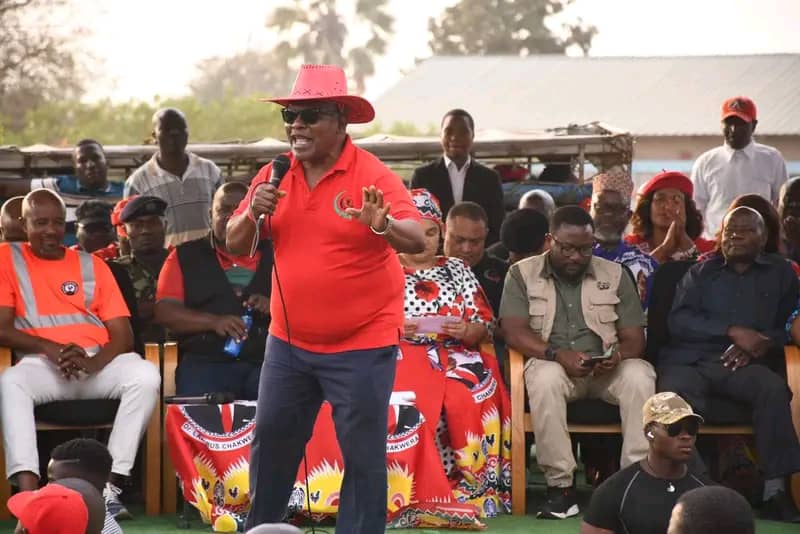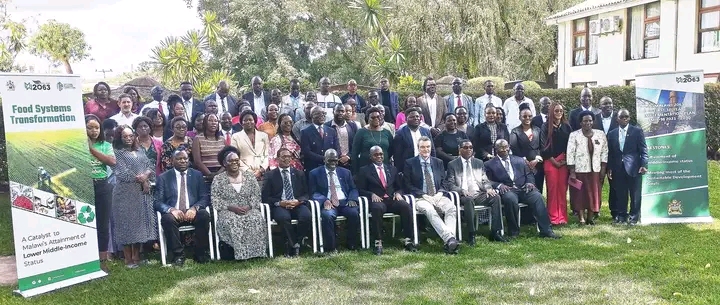By Burnett Munthali
In a recent political rally held at Lunzu in Blantyre, A Brown Mpinganjira, a prominent member of the Malawi Congress Party (MCP), raised significant concerns regarding the leadership of President Lazarus Chakwera, particularly in the context of the ongoing food insecurity crisis affecting the nation. Mpinganjira asserted that the current state of affairs aligns with biblical prophecies about famine, suggesting that the underlying issues plaguing Malawi are unlikely to change under Chakwera’s administration.
DPP Youth Leader Norman Chisale Criticizes MCP’s Richard Chimwendo Banda Over Response to Police Assault Case
Mpinganjira stated, “The leader of this country cannot change what God has already declared regarding hunger,” underscoring a belief that the challenges are not merely political but also deeply spiritual. He emphasized the importance of unity and communal support, urging citizens to collaborate and help one another during these difficult times. His call for collective action reflects an understanding that overcoming the food crisis requires concerted efforts from all sectors of society.
- Sikuti aliyense amadziwa kuphika… koma ndi nyama za Ekhaya Meats, aliyense amaoneka ngati chef!
- Iran’s Supreme Leader Calls for Muslim Unity Against US and Israel
- UTM Rallies Support in Machinga with Vision of Economic Revival
- Israeli settlers torch Palestinian Village in West Bank Rampage
- When security fails the constitution: A legal reflection on the Anti-Smartmatic Demonstrations
The rally served as a vital platform for the MCP to reaffirm its commitment to addressing pressing issues such as food insecurity, which has been exacerbated by rising costs of living and economic challenges. Mpinganjira’s message resonated with attendees, many of whom are grappling with the realities of poverty and hunger. His emphasis on solidarity and community engagement is crucial as the party seeks to connect with the electorate in anticipation of the 2025 elections.
Read also Chakwera Failed Miserably Three Years, Remaining Two Years Expect Nothing
As the electoral season approaches, Mpinganjira’s comments highlight the critical need for effective governance and leadership that responds to the needs of the people. The response from the public to the current administration’s handling of these challenges will likely influence voter sentiment significantly in the upcoming elections.
How President Lazarus Chakwera has failed on servant leadership
The sentiments expressed at the Lunzu rally reflect broader concerns within Malawi about the direction of the country. The MCP is positioning itself as a viable alternative, promising to address fundamental challenges like food security and economic stability through responsible leadership.





